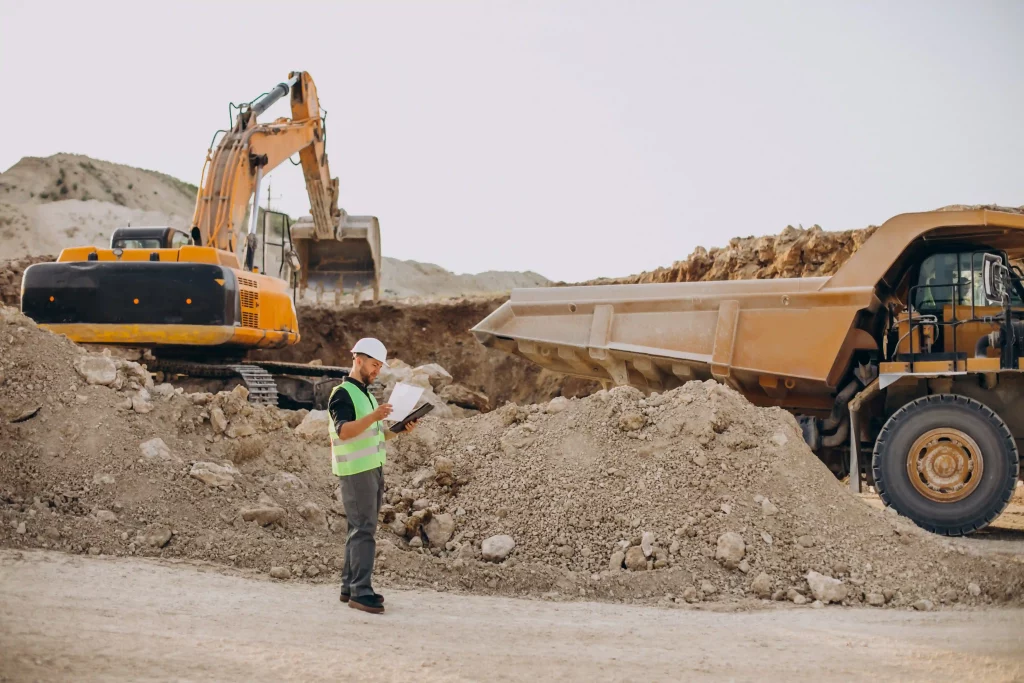How to Import Excavators from China to Africa? (Taxes, Shipping & Tips)
Industry News
2025/06/13
Africa’s construction and mining sectors are growing fast. Many businesses want sturdy, affordable excavators to meet this demand. Importing excavators from China to Africa is popular because of low prices and solid quality. However, the process can feel tricky for beginners. You need to understand taxes, shipping choices, and how to avoid problems.
This guide explains how to buy excavators overseas in simple steps. It covers costs, logistics, and helpful advice for a smooth experience.
Why Choose Excavators from China?
China makes a lot of construction machines. Here’s why African buyers prefer them:
Affordable Costs: Excavators from China cost 20-40% less than Western brands. This saves money for businesses.
Lots of Choices: You can find small excavators for city work or big ones for tough jobs like mining.
Better Quality: Top Chinese brands now build machines as strong and modern as global competitors.
Good Support: Many sellers offer warranties, spare parts, and help after you buy.
Still, importing needs careful steps to avoid extra costs or delays. Let’s break it down.
Step-by-Step Guide to Importing Excavators from China to Africa
1. Pick the Right Excavator
Before you buy, think about what you need. Consider these points:
Machine Details: Look at size, engine strength, and digging depth. Make sure it fits your project.
Brand Trust: Choose a brand known for reliability. Check if spare parts are easy to get.
Local Needs: Find out which excavator models work best in your area.
Helpful Hint: Ask suppliers for product lists. Compare different options to find the best one.
2. Choose a Trustworthy Supplier
Since you can’t see the machine in person, picking a good supplier is super important. Look for these signs:
Official Certifications: Check for marks like ISO or CE to show quality.
Customer Feedback: Read what other buyers say about the supplier.
Clear Policies: Make sure they offer warranties and fair return rules.
Quick Tip: Use online platforms or trade shows to find verified sellers. Don’t rush this step.
3. Learn About Taxes and Duties
Every African country has different taxes for importing excavators. Here are some examples:
| Country | Import Duty (%) | VAT (%) | Extra Fees |
| Nigeria | 5-20% | 7.5% | ECOWAS Levy (0.5%) |
| South Africa | 0-20% | 15% | Ad Valorem Tax |
| Kenya | 10-25% | 16% | Railway Development Levy (2%) |
| Ghana | 5-20% | 12.5% | NHIL (2.5%) |
Taxes can add up fast. For example, if an excavator costs $50,000, a 20% duty adds $10,000. Then, VAT or other fees pile on more. A customs broker can help you figure out the exact costs. They know local rules and can save you from mistakes.
Smart Advice: Always double-check tax rates with a local expert before you buy.
4. Plan Shipping and Logistics
Getting an excavator from China to Africa involves choosing how to transport it. Here are your options:
Sea Freight: This is the cheapest way for heavy machines. It’s slow but saves money.
Air Freight: This is faster but costs a lot. It’s best for smaller excavators.
Land Transport: If you’re near a port or border, trucks might work.
Key Points to Check:
Ask if the supplier offers door-to-door delivery. This makes things easier.
Find out if your country needs an import license for heavy machines.
Get quotes from several shipping companies to find the best price.
Shipping costs depend on the excavator’s size and weight. For example, a small excavator might cost $2,000 to ship by sea, while a big one could cost $5,000 or more. Ports like Lagos, Durban, or Mombasa are common destinations in Africa.
Pro Tip: Use a freight forwarder to handle shipping details. They know how to avoid delays.
5. Clear Customs Smoothly
Customs clearance can be a headache if you’re not prepared. You’ll need these documents:
Commercial Invoice: Shows the excavator’s price and details.
Bill of Lading: Proves the machine is on the ship.
Certificate of Origin: Confirms the excavator comes from China.
Packaging List: Lists everything in the shipment.
Fumigation Certificate: Needed if the machine has wooden packaging.
If papers are missing or wrong, your excavator might get stuck at the port. This costs time and money. A freight forwarder or customs broker can check your documents to avoid problems.
Useful Tip: Start preparing paperwork as soon as you order the excavator. Don’t wait until it arrives.
6. Ensure Support After Buying
After the excavator arrives, you’ll need help to keep it running. Make sure your supplier offers:
User Guides: Manuals to understand the machine.
Warranty: Covers repairs if something breaks.
Spare Parts: Easy access to parts for maintenance.
Some suppliers have local agents in Africa. This makes repairs and support faster. Ask about this before you buy.
Extra Advice: Test the excavator when it arrives. Make sure it works as promised.
Why MachPlaza Stands Out for Importing Excavators
If you want a reliable partner to import excavators from China to Africa, MachPlaza is a great choice. They specialize in construction equipment like excavators, bulldozers, and tower cranes.
What Makes MachPlaza Special?
Lots of Options: They offer many models from top Chinese brands.
Fair Prices: You buy directly from the factory, so there’s no extra cost.
Export Help: They assist with shipping, paperwork, and customs.
Great Support: They provide manuals, warranties, and spare parts.
Whether you need a small excavator for city projects or a powerful one for mining, MachPlaza makes importing easy and stress-free.
Common Questions About Importing Excavators from China to Africa
1. What Costs Should I Expect?
When you import an excavator, you pay for:
The machine’s price
Shipping and insurance
Import duties and taxes
Customs clearance fees
For example, a $30,000 excavator might have $6,000 in taxes and $3,000 in shipping. Plan your budget carefully.
2. How Long Does Shipping Take?
Sea Freight: Takes 30-60 days, depending on the port (e.g., Shanghai to Lagos).
Air Freight: Takes 5-10 days but costs more.
Delays can happen due to weather or port issues. Track your shipment to stay updated.
3. Do I Need an Import License?
Most African countries require a permit for heavy machinery. Check with your local government. For example, Nigeria and Kenya often ask for import permits. Your supplier or freight forwarder can guide you.
4. Can I Check the Excavator Before It Ships?
Many suppliers offer video tours of the machine. Some even arrange third-party inspections. Ask for this when you order to ensure quality.
5. What If the Excavator Arrives Broken?
Buy marine insurance to cover damage during shipping. When the excavator arrives, inspect it carefully. If something’s wrong, file a claim with the supplier or insurance company right away.
Tips for a Smooth Import Process
To make importing excavators from China to Africa easier, follow these tips:
Research Thoroughly: Learn about the excavator models and suppliers before you decide.
Compare Prices: Get quotes from multiple sellers to find the best deal.
Work with Experts: Hire a customs broker and freight forwarder to avoid mistakes.
Plan for Delays: Shipping or customs might take longer than expected. Have a backup plan.
Check Local Rules: Every country has different import laws. Know yours to stay compliant.
Ready to Import Your Excavator?
Importing excavators from China to Africa can save you money and meet your project needs. By following these steps, you’ll avoid common problems and get your machine on time. The key is planning ahead, choosing a trusted supplier, and understanding costs.
If you’re ready to start, MachPlaza can help. They offer expert advice, quality machines, and support with shipping and customs. Request a quote today to begin your import journey without stress.
Visit MachPlaza to find the perfect excavator for your business!


